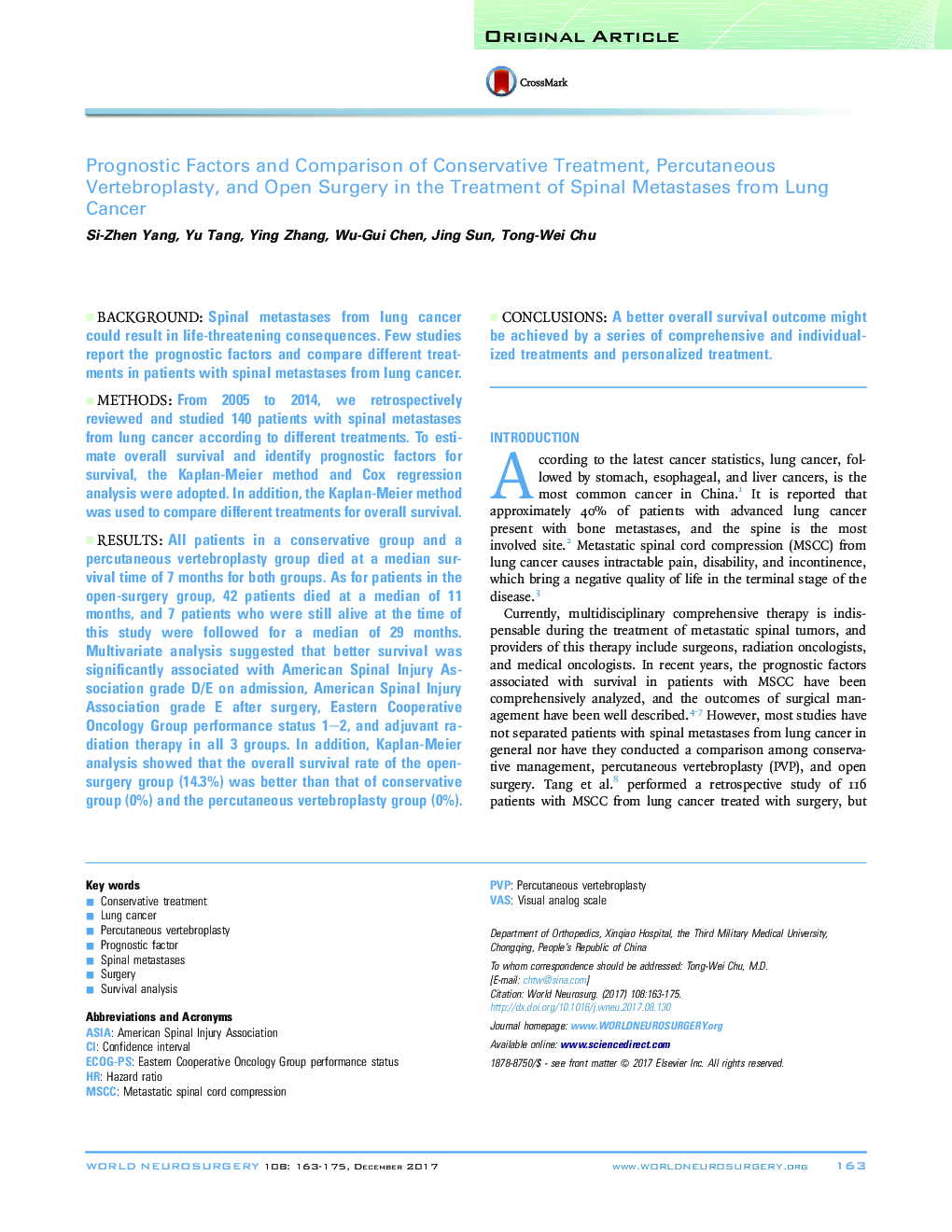| Article ID | Journal | Published Year | Pages | File Type |
|---|---|---|---|---|
| 5633770 | World Neurosurgery | 2017 | 13 Pages |
BackgroundSpinal metastases from lung cancer could result in life-threatening consequences. Few studies report the prognostic factors and compare different treatments in patients with spinal metastases from lung cancer.MethodsFrom 2005 to 2014, we retrospectively reviewed and studied 140 patients with spinal metastases from lung cancer according to different treatments. To estimate overall survival and identify prognostic factors for survival, the Kaplan-Meier method and Cox regression analysis were adopted. In addition, the Kaplan-Meier method was used to compare different treatments for overall survival.ResultsAll patients in a conservative group and a percutaneous vertebroplasty group died at a median survival time of 7 months for both groups. As for patients in the open-surgery group, 42 patients died at a median of 11 months, and 7 patients who were still alive at the time of this study were followed for a median of 29 months. Multivariate analysis suggested that better survival was significantly associated with American Spinal Injury Association grade D/E on admission, American Spinal Injury Association grade E after surgery, Eastern Cooperative Oncology Group performance status 1-2, and adjuvant radiation therapy in all 3 groups. In addition, Kaplan-Meier analysis showed that the overall survival rate of the open-surgery group (14.3%) was better than that of conservative group (0%) and the percutaneous vertebroplasty group (0%).ConclusionsA better overall survival outcome might be achieved by a series of comprehensive and individualized treatments and personalized treatment.
